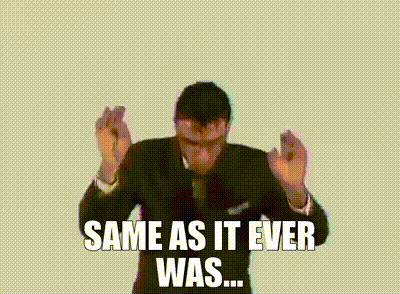Questions. Yes, we have some final (sort of) questions about journalism and religion news.
One one level, this week’s “Crossroads” podcast (CLICK HERE to tune that in) focused on all those headlines about the red ink and devastating layoffs in elite newsrooms such as Sports Illustrated, the Los Angeles Times and the Washington Post. For a quick summary of the drama, see this mini-report at Axios.
The news is staggering for people like me who have spent decades in journalism education — encouraging students to seek careers in traditional and online newsrooms at the local, regional and national level.
Thus, it’s hard to cheer about these disasters in the lives of many professionals. However, millions of millions of Americans — especially in red zip codes — have given up on the mainstream press. What about them? Should they cheer as major news organizations implode?
This week’s podcast is the last one that will be featured here at GetReligion, as we close a week from today, on this weblog’s 20th birthday. However, future episodes of Crossroads will continue to be available through the podcast page at the GetReligion.org archive, at my own Tmatt.net, the Religion Unplugged website, Lutheran Public Radio and the Apple podcasts page.
In this (sort of) finale, it was obvious to ask: Does the current newsroom employment crisis have anything to do with decades of journalism leaders failing to, you know, “get” religion when covering one of the most complex religious cultures in the Western world?
After recording the podcast, I had a flashback to a story that Rod “Live Not By Lies” Dreher shared about his years at the Dallas Morning News. Then, lo and behold, Dreher retold key parts of the story in a new Substack post (“Journalism Continues To Crash, Burn”).
A few of his colleagues were worried about the increasingly liberal — in terms of religion, culture and politics — product that the News was producing for the region it served.
“It aggravated us to no end that our readers were mostly conservatives — they really were; we had the audience research to prove it — but too many in the newsroom were bound and determined to act as if that wasn’t true.”










